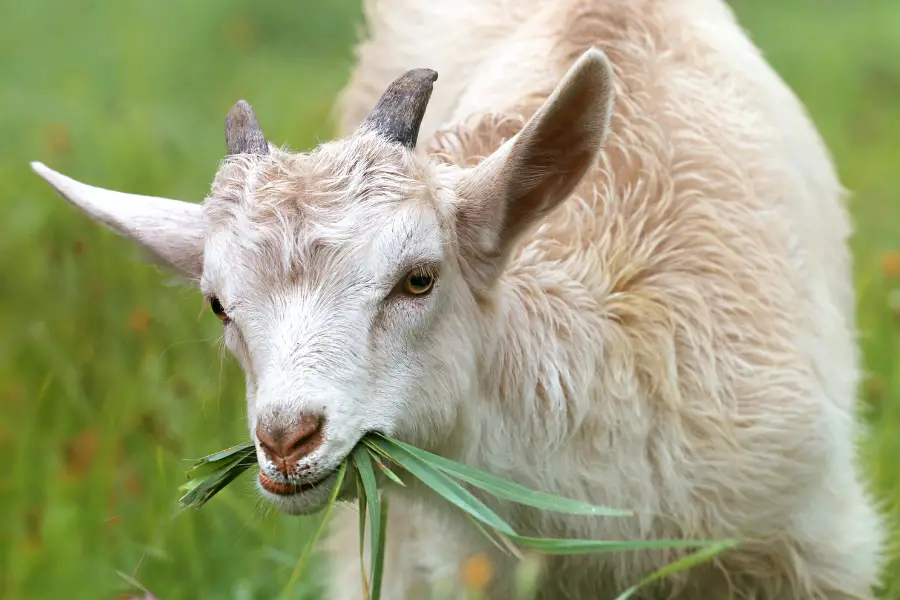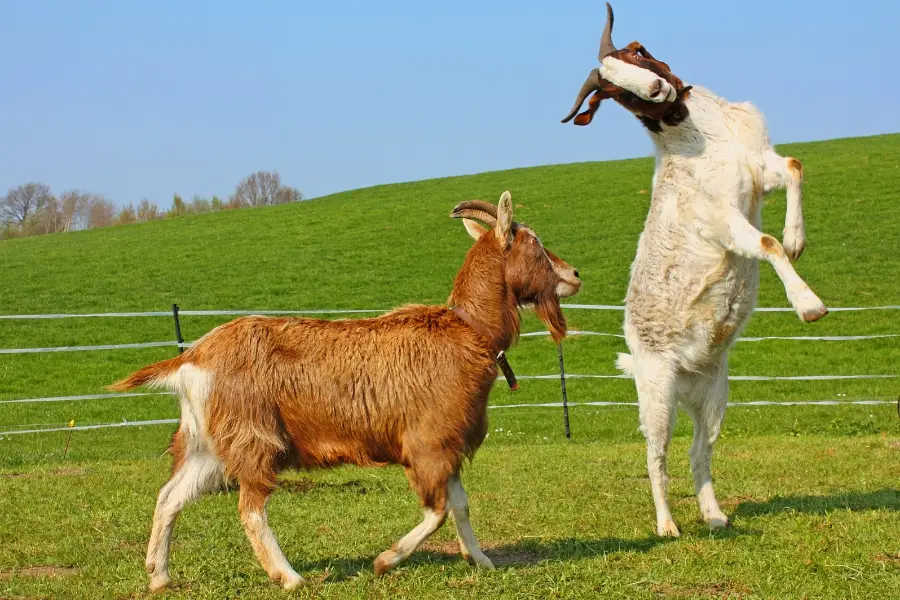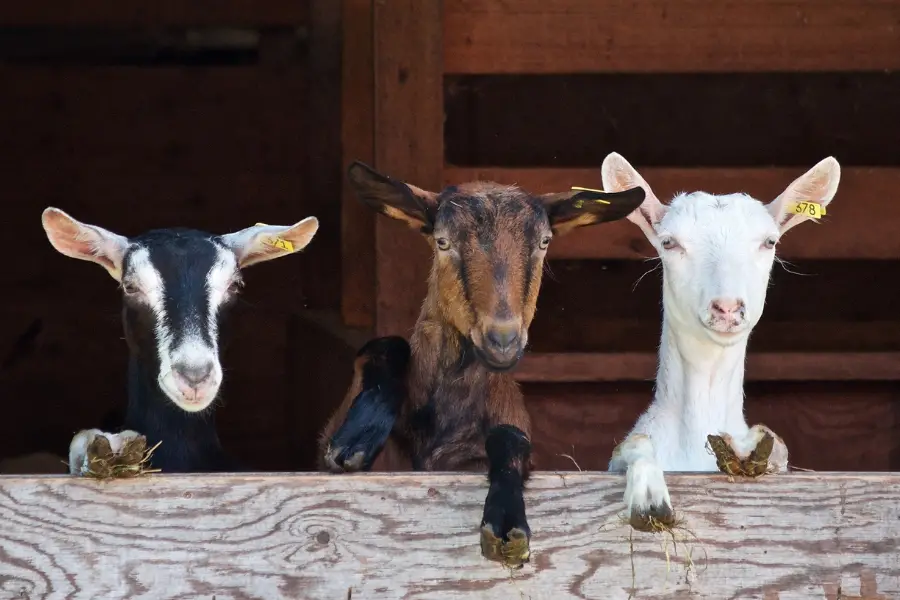
Goat’s milk anemia is a health concern associated with feeding goat’s milk to infants due to the lack of certain essential nutrients in the milk. While goat’s milk has been praised for its potential health benefits, such as being easier to digest and less allergenic than cow’s milk, it is important to understand the risks of goat’s milk anemia, particularly for babies. The consumption of goat’s milk by infants can lead to nutritional deficiencies that contribute to the development of anemia and other serious health problems. This article is informational only. It is not medical advice. Always consult with your physician.
Table of contents
Causes of Goat’s Milk Anemia
Anemia refers to a decrease in the number of red blood cells or hemoglobin in the blood, which can lead to decreased oxygen-carrying capacity and fatigue. Goat’s milk, even when fortified, lacks the necessary nutrients to balance the nutritional profile required for healthy red blood cell production and overall well-being in infants. Moreover, goat’s milk has been found to cause megaloblastic anemia due to a deficiency in folate (vitamin B9) among other complications such as hyponatremia, a condition where there isn’t enough sodium in the blood. It is crucial for parents and caregivers to be informed about the risks of goat’s milk anemia and make informed decisions when choosing a suitable milk source for their infants.
Key Takeaways
- Goat’s milk anemia is a health concern linked to feeding infants goat’s milk, which lacks essential nutrients for adequate red blood cell production.
- Anemia, hyponatremia, and megaloblastic anemia are potential health issues associated with the consumption of goat’s milk by infants.
- It’s essential for caregivers to be aware of the risks of goat’s milk anemia and choose a suitable milk source for their infants’ nutritional needs. Consult with your pediatrician.
Goats Milk and Anemia
Goat’s milk anemia is different than anemia in goats. Goat’s milk anemia is a health issue that humans, particularly infants, can get if they drink a diet of only goat’s milk. That is the topic of this article. On the other hand, anemia in goats refers to a condition of goats.
Iron Deficiency and Goats Milk
Iron is an essential mineral for the production of red blood cells and hemoglobin, which are responsible for carrying oxygen throughout the body. Iron deficiency can lead to anemia. Goat’s milk does not have enough iron, and diet of strictly goat’s milk can lead to anemia. On the other hand, Infant formulas have the necessary iron supplementation for infants and young children to prevent anemia. Always consult with your pediatrician about your infant’s diet.

Although goat’s milk is a nutritious alternative for some individuals, it should not be used as a primary source of nutrients for infants. Goat’s milk is low in critical nutrients, such as folate and vitamin B12, leading to megaloblastic anemia in infants fed exclusively on this milk. Megaloblastic anemia is characterized by a decrease in the number of red blood cells due to impaired DNA synthesis.
Moreover, exclusively feeding goats milk to young children can also result in metabolic acidosis, electrolyte imbalances, and hemolytic uremic syndrome. It is essential to provide a nutritionally balanced diet, including sources of iron, to infants and young children to prevent the development of anemia and other potential complications. Fermented goat milk, however, has been shown to improve anemia recovery and provide additional health benefits, thanks to its antioxidant properties and contribution to improved cardiovascular health.
Goat Milk Nutritional Profile
Goat milk is a wholesome dairy product, containing a wide range of nutrients, vitamins, and minerals. In this section, we will explore the nutritional benefits of goat milk by examining its protein content, fat content, and various vitamins and minerals.
Protein Content
Goat milk is a good source of protein, containing 30 to 35 grams per liter (g/L), with roughly 80% casein and 20% whey. Although the total casein in goat milk is slightly lower than that of cow milk, it still provides an adequate amount of this essential nutrient for support of bodily functions and growth.
Fat Content
Goat milk contains about 10 grams of fat per serving (1 cup or 240 mL), which is slightly lower than the fat content of cow’s milk. The fat in goat milk is composed of different types of fatty acids, including both saturated and unsaturated fats, making it a valuable source of energy and nutrients.
Vitamins and Minerals
Not only is goat milk a rich source of protein and healthy fats, but it also contains essential vitamins and minerals. Some notable vitamins and minerals found in goat milk are:
- Vitamin A: Goat milk is an excellent source of Vitamin A, which is essential for maintaining healthy vision, immune function, and proper growth and development.
- Calcium: Vital for strong bones and teeth, calcium is abundant in goat milk. It also plays a crucial role in muscle function and blood clotting.
- Copper: Although found in trace amounts, copper is necessary for the development and maintenance of various bodily functions, including the immune system, blood vessels, and bone health.
- Minerals: Goat milk contains other essential minerals such as potassium, phosphorus, and magnesium, which contribute to various bodily processes such as cellular function, bone health, and energy production.
In conclusion, goat milk is a nutrient-rich dairy option that provides an array of essential proteins, fats, vitamins, and minerals to support overall health. Given its potential to improve anemia, goat milk may offer additional health benefits when consumed as part of a balanced diet.
Infant Feeding and Goats Milk Formula
Infant Formula with Goats Milk
Goat’s milk-based formulas are safe for infants from birth to 12 months. It’s important to note that fresh goat’s milk is not recommended for infants; only goat’s milk-based formulas should be used. These formulas are created to provide proper nutrition, ensuring infants receive the necessary vitamins and minerals for healthy growth and development.
Comparing Goats Milk to Breast Milk and Cow’s Milk
Breast milk is the best source of nutrition for infants, as it provides an optimal balance of nutrients, including protein, fat, carbohydrates, and essential vitamins and minerals. However, if breastfeeding is not an option, infant formulas made from cow’s milk or goat’s milk can be suitable alternatives.
When comparing goat’s milk to cow’s milk, both serve as a base for infant formulas. However, there are some differences:
- Protein content: Goat’s milk has slightly less protein than cow’s milk but more than breast milk. It’s important that infant formulas meet the protein requirements for an infant’s growth.
- Fat content: The fat in goat’s milk is more easily digestible than cow’s milk, making it closer to the composition of breast milk.
- Lactose: Goat’s milk contains slightly less lactose than cow’s milk, which can be beneficial for infants with mild lactose intolerance. However, it’s not suitable for infants with severe lactose intolerance or galactosemia.
- Minerals and vitamins: Goat’s milk naturally has less folic acid and vitamin B12 than cow’s milk. These essential nutrients are crucial for preventing anemia in infants. As a result, goat’s milk-based formulas must be fortified with additional folic acid and vitamin B12 to ensure adequate levels of these nutrients.
While goat’s milk formula can be a suitable option for infants, it’s important to remember that it may not be ideal for all babies, especially those with severe milk or lactose allergies. Always consult with your pediatrician before introducing a new formula to your baby’s diet.
Health Benefits and Allergies
Goats Milk in Allergies and Intolerance Management
Goat milk is known to be less allergenic than cow’s milk due to differences in protein composition. For individuals with cow’s milk allergy, goat milk may serve as a suitable alternative as the proteins in goat milk may not trigger an allergic reaction.
One key difference is that goat’s milk has lower levels of lactose, which may be suitable for those with lactose intolerance. The presence of A2 casein protein in goat milk is also beneficial, as it is easier to digest for individuals with certain sensitivities compared to A1 casein found in cow’s milk.
Potential Health Benefits
Goat milk has a unique nutritional profile, offering several potential health benefits:
- Higher levels of calcium for strong bones and teeth
- More potassium for better muscle and nerve function
- Slightly higher protein content, promoting muscle growth and repair
- Rich in essential minerals such as phosphorus and magnesium
- Contains vitamins such as vitamin A, a small amount of B12, niacin, and manganese
- Presence of selenium and copper, which may contribute to antioxidant activity
In addition to the above nutrients, recent studies suggest that fermented goat milk may have a positive effect on anemia recovery. The fermented form of goat milk is thought to enhance antioxidant status, provide protection against oxidative damage, and improve iron homeostasis. Furthermore, fermented goat milk could potentially improve cardiovascular health due to its nutrient content and antioxidant properties.
While the potential benefits of goat milk consumption are promising, it is important not to exaggerate its effects or claim it as a cure for any specific health condition. Always consult with a healthcare professional before making any significant dietary changes, especially for those with allergies, intolerances, or underlying health conditions.
Other Related Information
Folate and Anemia
Folate is an essential nutrient that plays a crucial role in the production of red blood cells and the prevention of anemia. Goat’s milk is known to be deficient in several key nutrients, including folate. It contains only 6 μg/L of folate, while breastmilk and cow’s milk contain approximately 45 μg/L to 50 μg/L. Infants younger than six months of age need 65 μg/day of folate, with the recommended daily allowance increasing as they grow.
The deficiency of folate in goat’s milk can contribute to the development of megaloblastic anemia in infants. This is a type of anemia where red blood cells are larger and fewer in number than normal, leading to reduced oxygen-carrying capacity. It is essential to be aware of the risks associated with using goat’s milk as a substitute for breastmilk or infant formula due to its lower folate content.
Video – Preventing Goat Milk Anemia with Proper Formula
In this short official video from Kabrita you will hear about feeding formula to babies. Skip to 0:21 to find out why you can’t give straight goat’s milk to infants.
Frequently Asked Questions
No specific evidence suggests that goat milk can prevent anemia. In fact, a diet strictly of goat milk can cause anemia. However, research has shown that fermented goat milk can improve antioxidant status, protection from oxidative damage to biomolecules, and improve iron homeostasis in the body during anemia recovery
Goat milk and cow milk have similar iron contents, with goat milk containing slightly less iron than cow milk. Neither of them is considered an adequate source of iron for infants and young children, as they need higher iron levels to support their rapid growth.
Goat milk, like cow milk, is naturally low in folate. Consuming unmodified goat milk exclusively in large quantities, especially for infants, can potentially lead to megaloblastic anemia due to folate deficiency. Therefore, it is crucial to ensure an adequate intake of folate from other dietary sources or supplements.
There are potential risks associated with feeding unmodified goat milk to infants. The American Academy of Pediatrics cautions that goat milk can be unsafe and, in some cases, life-threatening for babies. Some reported risks include severe electrolyte abnormalities, metabolic acidosis, allergic reactions, and hemolytic uremic syndrome.
There is no direct evidence of goat milk significantly affecting hemoglobin levels. However, as previously mentioned, consuming unmodified goat milk exclusively may potentially lead to megaloblastic anemia, which is caused by folate deficiency and can result in low hemoglobin levels.
Megaloblastic anemia is a type of anemia characterized by the presence of abnormally large and immature red blood cells in the bone marrow. It is primarily caused by deficiencies in either folate or vitamin B12. These deficiencies can lead to reduced DNA synthesis and impaired red blood cells’ maturation, resulting in the formation of large, immature cells, which can negatively affect the body’s ability to transport oxygen efficiently.




